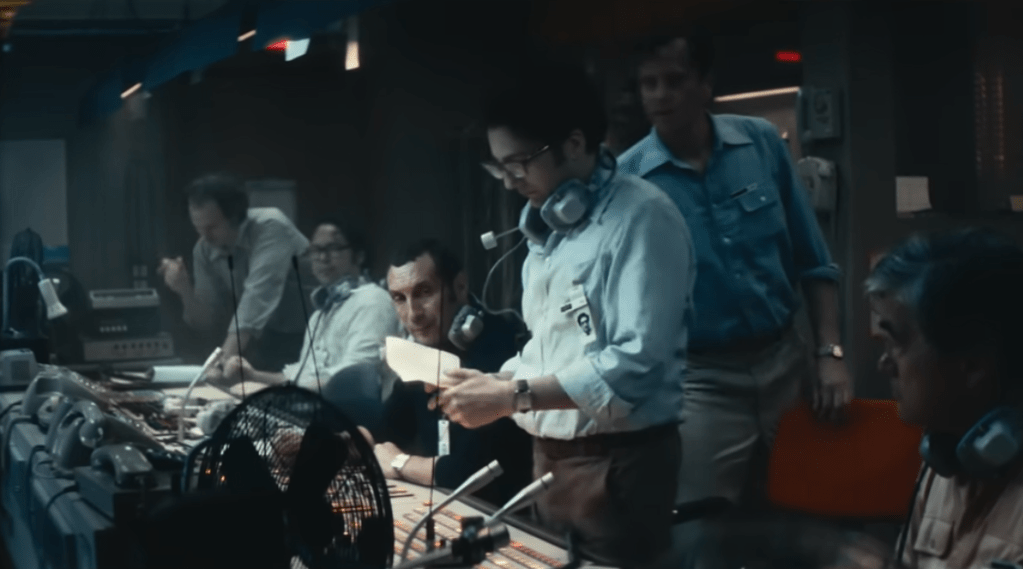🔴 Website 👉 https://u-s-news.com/
Telegram 👉 https://t.me/usnewscom_channel
It’s not cozy Christmas fare, but if you want to see a movie that gets the past half-century of Palestinian terror right, go to a movie theater and see “September 5.”
This compact Paramount release, covering the 1972 Summer Olympics massacre of Israeli athletes in Munich, has a refreshingly simple — but not simplistic — take: Kidnapping and murdering civilians is bad, and there is no context in which to justify it.
Swiss-born Tim Fehlbaum, the director, isn’t known for ideology; his previous features were science fiction and horror.
It’s the absence of ideology here that works.
We see the Munich terror attack unfold through the eyes of journalists at ABC Sports — people who are competent at their job, covering the pre-attack Games, but who aren’t foreign-policy “experts.”
So when the ABC team, guided by rookie producer Geoffrey Mason (actor John Magaro), hears gunshots from the athletes’ housing compound that September dawn, the reaction is natural, in an era before reporters came to associate global events with terror risk: shock and perplexity.
When the terrorists reveal themselves as they peer out of the Israeli athletes’ apartment they’ve taken over, the American journalists reflexively see them as bad people.
There is no backstory to explain why the terrorists are doing what they are doing, no tales of supposed Israeli oppression.
The terrorists are fully masked. They brandish guns that they have already used, to kill wrestling coach Moshe Weinberg and weightlifter Yossef Romano. They are silent and scary.
They don’t get to tell their “side” in the film, because they have no “side.”
It is so obvious that there is no excuse for such depraved action that no one even thinks to say there is no excuse.
The sports team keeps the story, beating back an attempt by ABC News to take it over.
The reporters’ first dilemma: What to call the killers on air?
Disregarding an argument that the issue is too complex for a descriptive term, they call them what the Germans are calling them — terrorists.
It is clear, too, who the victims are, as the sports team crafts a poster for broadcast, with the nine remaining Israeli hostages’ photos and biographies.
In decades since, we’ve seen countless similar visualizations of the victims of Islamist terror, including victims of 9/11 and, more recently, Oct. 7. Here, the power is the newness.
Another now-regular feature of terror attacks that surprises the naïve reporters: government ineffectuality.
The Munich Olympics were supposed to showcase a reformed, enlightened Germany, and the attack happened partly because West Germany so poorly secured the Games: Elected officials didn’t want visuals of armed German officers.
But it also happened partly because of a post-war innocence — people didn’t think it could happen.
This was a time before people had to go through body scanners to see a pop star perform, when athletes entering their housing complex could, and would, just hold the door open for strangers.
When the German government does figure out what to do, it acts with what the film implies was an impure motive.
Acceding to terrorists’ demands to take the hostages to an airfield for an escape to Cairo also conveniently moves the bloody incident away from the Olympics site’s concentration of news coverage.
And not having to evacuate the Olympics housing altogether means retaining the option, later exercised, to resume the Games.
It’s here that the ABC Sports team screws up, prematurely reporting rumors, encouraged by the German government, that the hostages are all free.
But Germany’s rescue attempt at the Fürstenfeldbruck military base fails, and the terrorists kill all nine remaining hostages.
Sportscaster Jim McKay, via archival footage, somberly corrects the mistake on air: “They’re all gone.”
The mistake points up the lack of familiarity with evil — the reporters err partly because they can’t conceive of a reality in which the Israelis suffer such a horrific loss.
America was used to happy endings.
The ABC team in the film doesn’t know it, but we do: Sept. 5 was lodged halfway between the end of World War II, 27 years earlier, and 9/11, 29 years later. Twenty-two years after that, we got Oct. 7.
The joltingly novel aspect of “September 5” the film is that, for the sportscasters, it was so new.
Over more than five decades, we’ve normalized the inconceivable.
Nicole Gelinas is a contributing editor to the Manhattan Institute’s City Journal.
